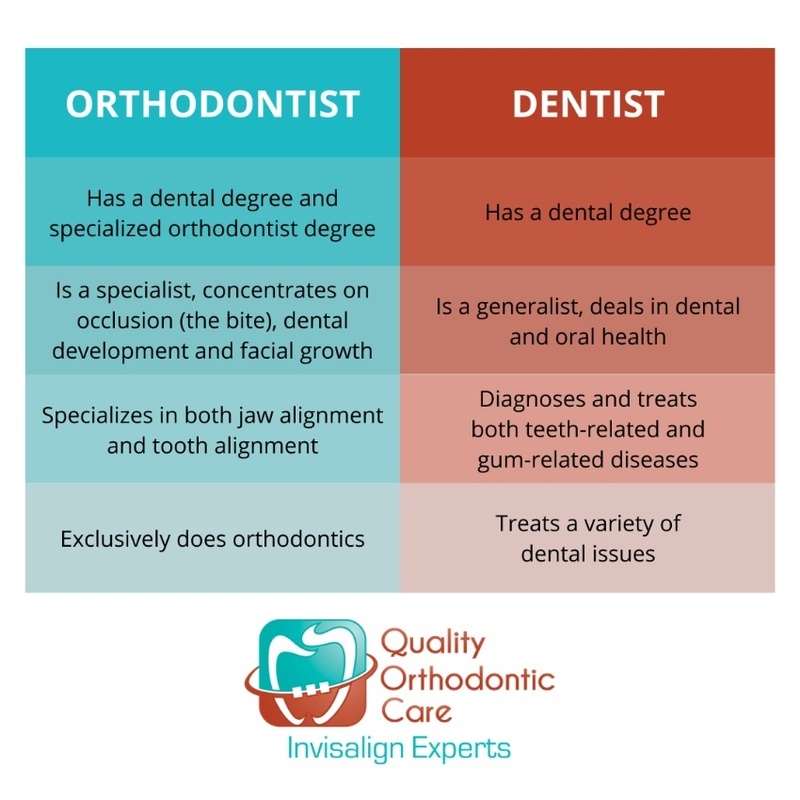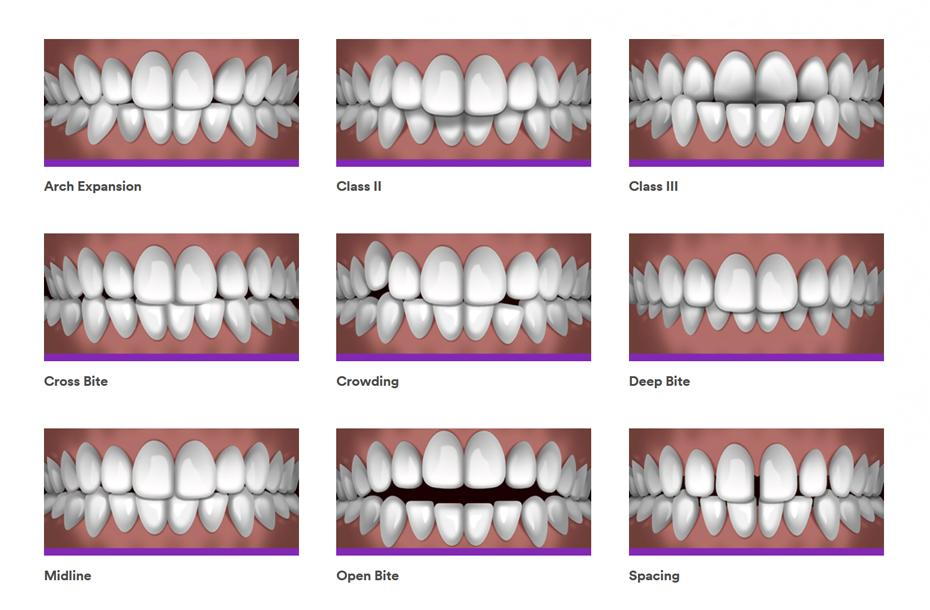Not known Factual Statements About Causey Orthodontics
Not known Factual Statements About Causey Orthodontics
Blog Article
Unknown Facts About Causey Orthodontics
Table of ContentsThe smart Trick of Causey Orthodontics That Nobody is DiscussingThe Main Principles Of Causey Orthodontics Facts About Causey Orthodontics UncoveredThe 5-Minute Rule for Causey OrthodonticsUnknown Facts About Causey OrthodonticsCausey Orthodontics - The FactsThe Ultimate Guide To Causey Orthodontics
What is the difference in between a dental expert and an orthodontist? All dental professionals, consisting of orthodontists, treat the teeth, periodontals, jaw and nerves.
Orthodontists and dental professionals both provide dental take care of individuals. Orthodontists can operate in an oral workplace and provide the same therapies as various other dental experts. You can believe of both medical professionals that treat gum tissue and teeth problems. The main distinction is that becoming an orthodontist requires a specific specialized in treating the misalignment of the teeth and jaw.
The Of Causey Orthodontics
An orthodontist is a dental practitioner that has undergone training to specialize in the medical diagnosis, prevention and therapy of abnormalities in the jaw and teeth. They can likewise determine prospective problems in teeth placement that may establish when conditions are left untreated (orthodontist near me).
This includes all the necessary education to come to be a basic dental expert. According to the American Student Dental Organization (ASDA), it suggests you will require to have either a Medical professional of Medication in Dental Care (DMD) or a Medical Professional of Dental Surgical Procedure (DDS). In other words, orthodontists require to finish dental school and after that acquire an orthodontics specialized education and learning.
Some orthodontists additionally get their masters in craniofacial biology. These programs concentrate on 2 specific areas or techniques: Dentofacial Orthopedics: This research focuses on directing teeth and jaw development.
8 Simple Techniques For Causey Orthodontics

 These consist of device such as dental braces, retainers and Invisalign. So, what does an orthodontist do, and what do they concentrate on? The overall goal of an orthodontist is to enhance a person's bite. Not every person is born with straight teeth, and an orthodontist will certainly guarantee that individuals get equally spaced straight teeth.
These consist of device such as dental braces, retainers and Invisalign. So, what does an orthodontist do, and what do they concentrate on? The overall goal of an orthodontist is to enhance a person's bite. Not every person is born with straight teeth, and an orthodontist will certainly guarantee that individuals get equally spaced straight teeth.
6 Easy Facts About Causey Orthodontics Explained
The American Organization of Orthodontists advises your initial check up by age 7. You'll need to see your orthodontist if you have a misalignment in your teeth, also understood as malocclusion. Likewise, if you notice irregular bite patterns, a slightly askew jaw, or when your teeth are overcrowded, you will likely need orthodontic therapy.
In addition, we supply flexible therapy schedules, flexible settlement alternatives and an enjoyable, pleasurable experience.
An orthodontist is a dental practitioner trained to identify, protect against, and deal with teeth and jaw irregularities. Orthodontists work with individuals of all ages, from kids to grownups (https://www.dealerbaba.com/suppliers/health-care/dental-equipment/causey-orthodontics-1.html).
The smart Trick of Causey Orthodontics That Nobody is Talking About
Malocclusion, or misaligned teeth, can cause oral issues, including dental cavity, gum condition, and challenging or excruciating chewing. But not every person is birthed with straight teeth. If you have a negative bite or big areas between your teeth, you might intend to speak with a dental expert focusing on orthodontic care.
(Image Credit Rating: DigitalVision/Getty Images) Orthodontists use taken care of and detachable oral devices, like braces, retainers, and bands, to transform the position of teeth in your mouth. Orthodontic therapy is for dental irregularities, consisting of: Misaligned teethBite issues, like an overbite or an underbiteCrowded teeth or teeth that are too far apartJaw misalignmentThe objective of orthodontic therapy is to boost your bite.
How Causey Orthodontics can Save You Time, Stress, and Money.

, yet not all dental experts are orthodontists. They focus on two areas: Just how to effectively and safely move teeth Just how to effectively direct development in the teeth, jaw, and faceOnce an orthodontist has finished training, they have the alternative to end up being board accredited.
Malocclusion leads to tooth congestion, an askew jaw, or irregular bite patterns. Malocclusion is generally treated with: Your orthodontist attaches steel, ceramic, or plastic square bonds to your teeth.
The smart Trick of Causey Orthodontics That Nobody is Discussing
If you have only small malocclusion, you may have the ability to make use of clear dental braces, called aligners, instead of traditional dental braces. Some people need a headwear to aid relocate teeth into line with stress from outside the mouth. After dental braces or aligners, you'll need to put on a retainer. A retainer is a custom-made device that maintains your teeth in place.
Report this page